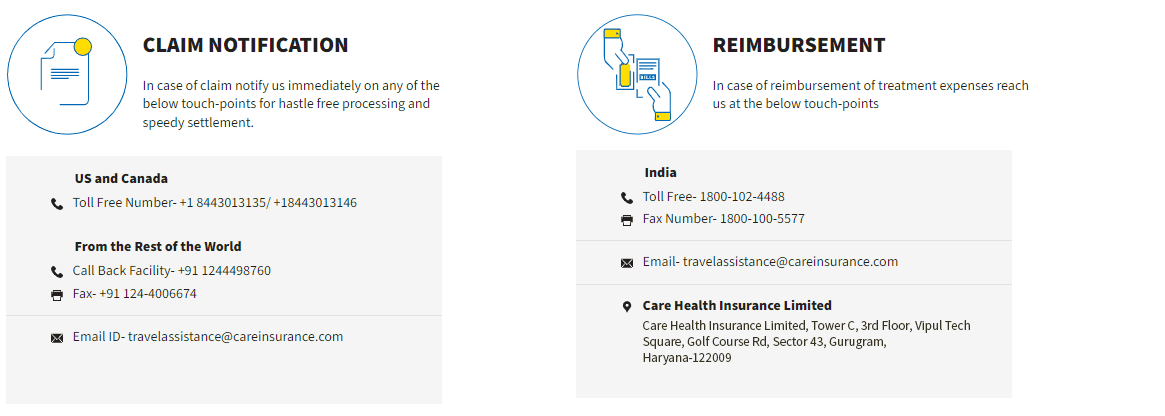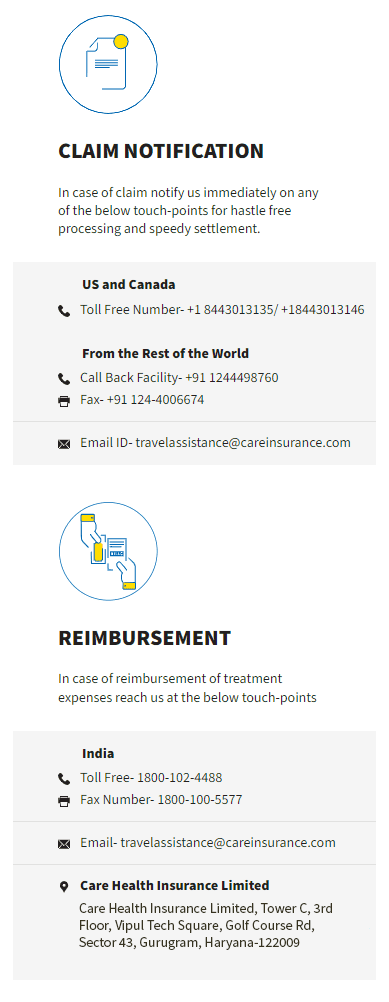


Coverage for life-threatening PED conditions##
Schengen region is Europe’s passport-free zone of 28 European countries that allows travellers to move freely within their boundaries with a standard visa and Schengen visa insurance.
Whether you travel for a vacation, business tour, or as a student, any emergency in a European country may be enough to spoil your entire trip. Even a single-day hospital stay in a European country may ruin your trip budget. However, you do not have to worry if you have travel insurance for International journey in place. Read more about how Schengen travel insurance secures your European trip most easily.
A Schengen visa is a short-stay visa that allows you to travel visa-free to 29 countries that have signed the Schengen agreement. As per Regulation 810/2009 of the European Union, you must have valid Schengen area travel insurance with a minimum of €30,000 coverage to apply for a Schengen visa.
While exploring European countries, unforeseen medical and non-medical emergencies can derail your trip budget. Here, a Schengen travel insurance policy comes into play by covering unforeseen emergencies incurred while travelling to a country in the Schengen region.
The Schengen visa insurance covers you for unexpected healthcare or travel-related emergencies, such as hospitalisation, accidents, passport loss, and more. Before your permit, the immigration officers check your travel insurance coverage for the Schengen area and other required documents that help you travel safely.
Schengen travel insurance by Care Health Insurance comes with the following features:
*Please note the mentioned features of the plan are for reference purposes only. Readers should refer to the brochure for more details on product features
When purchasing Schengen Travel insurance, always understand the plan highlights carefully. First, decide whether you need standalone, family or student travel insurance. Further, consider whether you wish to buy a single-trip or multi-trip option. Often, various plans may need clarification on the minimum and maximum entry age of a travel insurance plan for a Schengen visa. Here, the table mentioned below can be of help:
| Description | Explore Europe | Student Explore |
|---|---|---|
| Sum Insured | € 30K & 100K (Vary according to the premium) | US $ 30K, 50K, 100K, 300K, 500K, and 1000K |
Trip Options
|
Yes Yes |
There are fixed policy tenure options of 1 to 24 months available under Student Travel Plans |
| Entry Age (Single Trip) | Minimum: Child - 1Day; Adult - 18 Years Maximum: Child - 24 Years; Adult- Lifelong |
Every fixed-tenure policy involves the same eligibility criteria- Minimum - 12 Years Maximum - 40 Years |
| Entry Age (Multi-Trip) | Minimum: Child - 1Day; Adult - 18 Years Maximum: Child - 24 Years; Adult- Lifelong |
Minimum - 12 Years Maximum - 40 Years |
*Family option is only available on Single Trip Policies.
Our Schengen travel insurance from India promises access to quality medical care. Below are some top covers included under our Schengen travel plan:
The Schengen travel Insurance does not offer coverage in the following scenarios:
Note: Plan features, benefits, coverage, and claims underwriting are subject to policy terms and conditions. Please refer to the brochure, sales prospectus, and policy documents carefully.
The travel insurance for Schengen visa offered by Care Health Insurance is affordable and budget-friendly. CHI's travel healthcare insurance premium for the Schengen zone starts at around Rs. 450 *for a single traveller on a week-long visit. For instance, if you are travelling from India to France, Spain, and Italy on a week-long, one-time visit, the approximate premium cost of your travel insurance with a sum insured of $50k is calculated as below:
| Insured Member(s) | Age | Any Pre-existing Disease | Sum Insured | Policy Duration | Premium Amount (approx.) |
|---|---|---|---|---|---|
| 1 | 30 years | No | $ 50,000 | 7 Days | Rs. 621* |
*The above-mentioned travel insurance premium is calculated subject to no pre-existing medical conditions of the insured member. It considers that the insured members have not been diagnosed, hospitalised, or undergone any treatment in the last 48 months. Also, the premium amount is subject to change if the insured person has already claimed any travel policy before.
Choosing the right travel insurance plan can be challenging, especially if this is your first European journey. At Care Health Insurance, we will assist you in finding the perfect travel health insurance that meets your unique healthcare and trip-related needs so that you can enjoy a hassle-free tour. Here are a few essential things to consider before finalising travel medical insurance for Schengen countries:
The Schengen region is a zone in the European continent where 28 European countries have abolished their borders to allow visitors to visit without any hassle of applying and re-applying for a visa.
| Austria | Belgium | Czech Republic | Denmark | Estonia | Finland | France |
| Germany | Greece | Hungary | Iceland | Italy | Latvia | Liechtenstein |
| Lithuania | Luxembourg | Malta | Netherlands | Norway | Poland | Portugal |
| Slovakia | Slovenia | Spain | Sweden | Switzerland | Croatia | - |
| Category | Details |
|---|---|
| Existence | First signed on June 14, 1985, between five countries(Belgium, the Netherlands, the Grand Duchy of Luxembourg, France, and the Federal Republic of Germany) |
| Area | 4.312 million square km |
| Total Population | 400 million |
| Total Countries Signed | 28 countries till date |
| Official Languages | German, French, Dutch, Greek, Swedish |
| Official Currency | Euro |
| Best time to travel | May, June, and September |
A Schengen visa allows visa-holders, a free movement across the entire Schengen Zone up to the visa's validity and period of stay. The Schengen visa can have different restrictions depending on the Embassy's directives. The different types of Schengen visas are as follows:
| Type of Visa | Details |
|---|---|
| Single Entry Visa | A single-entry visa allows the visa holder to enter the Schengen region only once within the given period, as mentioned on the visa sticker on the passport. Re-entry to the area is not permitted once the holder exits the Schengen region. |
| Double Entry Visa | A double-entry visa allows the visa holder to enter the Schengen region only twice within the given period, as mentioned on the visa label on the passport. Re-entry to the area is permitted only once in the region as per the limitations on the visa. |
| Multiple Entry Visa | Depending on the frequency of travel to the Schengen region, Indian nationals can get a Multiple Entry visa rule for the Schengen zone provided they do not violate the 90/180 Schengen Rule. This rule states that one cannot stay in Schengen for more than 90 days within the 180-day limit. One must count 180 days backward and see if they were in the Schengen region for more than 90 days before travelling to any Schengen-member country again on a multiple-entry visa. |
| Airport Transit Visa | Airport Transit Visa allows the holder of a visa to travel through the international zone of the Schengen Country Airport without entering the Schengen Area. An airport transit visa is mandatory for the citizens traveling from one non-Schengen state to another non-Schengen state through a change of flights in a Schengen country airport. |
| Uniform Schengen Visa | A Uniform Schengen Visa or USV is a permit given to Indian nationals travelling to any Schengen region country to transit or reside in the desired territory for a certain period of a maximum of up to 90 days. The USV has two types: Type A and B are Airport Transit Visas, and Type C is a short-term visa. |
| Limited Territorial Validity Visa | This type of visa allows the visa holder to travel to the specific Schengen States when applying for the visa. The visa holder cannot travel to any other Schengen country. The first entry and final exit must be from the same country as mentioned in the visa. |
| National Visa Type D | The National Visa Type D is granted to those who wish to study or work for a limited time in the Schengen area. This visa can be given as a single or multiple entry, depending on the requirement. To be able to qualify for a multiple-entry national visa, one must meet the following criteria:
|
The application rules for a Schengen visa are comparatively stricter than other nations, so you must qualify for the below-mentioned Schengen visa requirement:
Schengen Travel Health Insurance: You need to buy travel insurance for Schengen to get the visa. If you are a Student, you can get a Student travel insurance, whereas a travel insurance for senior citizens can be useful for the elderly.
Cover Letter: You need to attach a cover letter along with your Schengen visa application. In this cover letter, you must explain the purpose of your visit, followed by your travel itinerary.
Essential Documents: You need essential documents such as the visa application form, two identical photos, and bank statements showing a minimum balance of €30,000 for the last six months. Also, you need proof of civil status (birth certificates), employment contract, and income tax proof.
Appointment with the Embassy: Next, you have to book an appointment at least a month back for an interview to ensure the timely process of your visa.
The application procedure for a Schengen Visa is seamless and straightforward. One needs to gather all the required documents and purchase travel insurance for a Schengen visa before applying. Here are the steps to apply for a Schengen visa:
Decide on the type of visa from uniform, airport, single, double, or multiple-entry visas as per your travel requirements. To find out which visa suits you, scroll down to the 'Types of Visa' section.
Find out where you need to apply - A visa centre where your destination country's embassy has outsourced visa submission or the embassy itself.
Find out the perfect time to apply for a Schengen visa. Ideally, you should submit your Schengen visa application three to four weeks before your trip starts.
To start your application process, you need to book an appointment with the embassy or consulate where you have applied. Appointments can be booked online or in person.
There's a common Schengen visa application form for all, no matter which country you are applying from. Fill in all your details, including personal information, background, and the purpose of travelling, among other trip-related information. Don't forget to print out two copies of the form and attest both of them.
Similar to any other visa application, you may need documents for the Schengen visa application. While gathering your documents you should collect your valid passport, two identical photos, a travel insurance policy, flight itinerary, proof of accommodation, etc.
Present Your documents to the visa counsellor who will conduct your brief interview concerning your background, travel purposes, security-related checks, etc. The interview ensures that your trip and others are safe and sound.
Generally, the visa fee is non-refundable as per the authorities. We will pay for reimbursement of the visa fee if only the visa rejection happens due to reasons other than negligence by the insured members. However, you must always check for the refund provision before paying the visa fee. You can pay the Schengen visa fee quickly through online modes of payment.
Regularly with the embassy about your visa status. Once confirmed, await for your authorised passport to embark on your journey.
You can apply for a Schengen Visa for up to 6 months to 15 days before your travel date. However, the visa authorities may take 10-15 days to approve/ reject your visa, it is recommended to not wait till the last minute to apply for a Schengen Visa.
Before buying a Schengen visa having Schengen visa insurance is a pre-requisite. Later, you can submit the below-mentioned documents to the embassy or consulate near to you:
Moreover, you should also carry the offer letter, and proof of work such as employment if you are travelling for a business purpose. If you are a student, you should carry your mark sheet and/or admission proofs.
The premium cost for Schengen travel insurance may vary based on factors such as age, places you are to visit, pre-existing ailments, coverage, single or multi-trip cover, etc. However, at Care Health Insurance, the international travel insurance for Schengen zones can start from as little as ₹65/- per day.
No. To apply for a Schengen Visa to visit European countries, having Travel health insurance with a balance of at least Euro 30,000 is mandatory.
The right way to purchase the best plan is to compare travel insurance plans from some of the best health insurance companies and then opt for the one which meets your needs the most.
Europe is a company that is economically strong. Thus, keeping in mind the expensive healthcare facilities, CHIL has designed a financial cushion that covers you while you cover your healthcare needs in a Schengen region.
To apply for a Schengen visa, it is mandatory to apply for Travel medical insurance in the home country of the insured.
Yes. If you are applying for a Schengen Visa, a bank statement not older than 3 months can be used as proof.
Yes. Schengen Travel Insurance is a prerequisite document to apply for all types of visas for Schengen Countries.
Yes, a Schengen Visa allows you to cross borders across the Schengen region on a single visa. If you have bought a Schengen visa, you do not have to bother again and again to visit different countries in the European continent.
There are a number of factors that may affect the premium of Schengen travel insurance such as:
It may take around two weeks for the Schengen visa to be processed however, the time may vary depending on various factors.
Yes, international travel insurance is a prerequisite when applying for a Schengen visa.
When applying for a Schengen visa, you must have Schengen travel insurance with a minimum sum insured of €30,000.
Schengen travel insurance is a mandatory requirement when filing for a Schengen visa. Therefore, to avoid visa rejection, you should buy Schengen travel insurance before applying for a visa.
Disclaimer: The information provided is for reference purposes only. Please refer to the official websites for country-specific information and policy documents for details on plan benefits, coverage, and exclusions.
^^Number of Cashless Healthcare Providers till 31st March 2024
**Number of Claims Settled as of 31st March 2024
^Family members on the same policy with the same sum insured receive discounts on the premium of additional members covered: 2 members 5%, 3 members 10%, 4 members 15%, 5 members 17.5%, 6 members 20%.
##The life-threatening pre-existing diseases are covered up to 10% of the sum insured (max. up to $10,000) if disclosed during policy purchase.
Get the best financial security with Care Health Insurance!
Sales:phone_in_talk1800-102-4499
Services:8860402452
Live Chat

